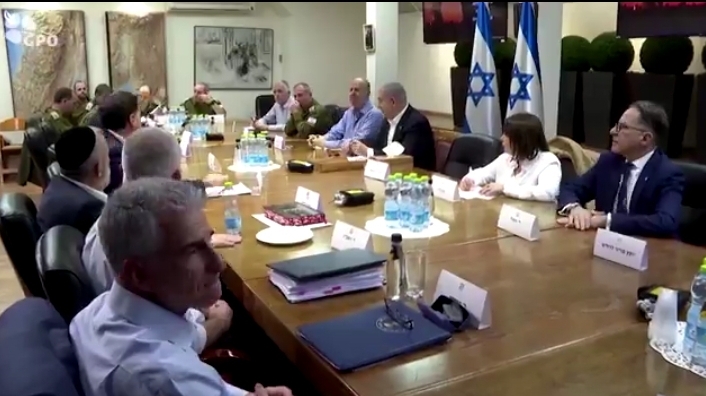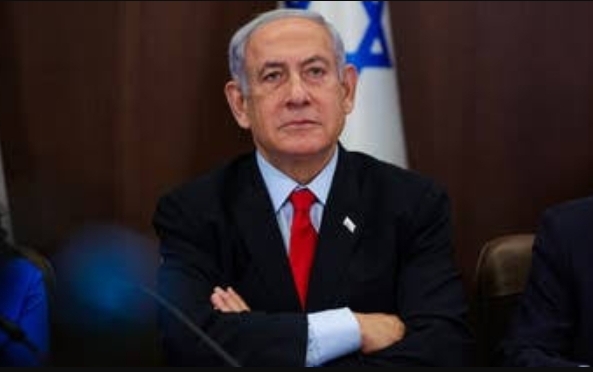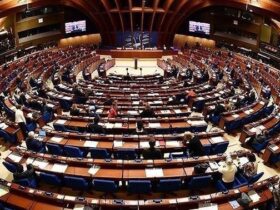Israeli Prime Minister Benjamin Netanyahu has rejected US calls to scale back Israel’s military offensive in the Gaza Strip or take steps toward the establishment of a Palestinian state after the war, drawing an immediate scolding from the White House.
In a nationally televised news conference on Thursday, Mr. Netanyahu vowed to press ahead with the offensive until Israel achieved a “decisive victory” over Hamas, the Islamist group that controls Gaza.

He said he had relayed his opposition to a Palestinian state to the US, Israel’s closest ally.
“I have told our American friends that in any future arrangement, Israel must have security control over the entire territory west of the Jordan River,” Mr Netanyahu said.
“That collides with the idea of sovereignty. What can we do?”
He added that the lack of Palestinian statehood had not stood in the way of normalisation agreements with Arab states in recent years and that he still intended to add more countries to those accords.
Mr Netanyahu, who leads a far-right government opposed to Palestinian statehood, repeated his longstanding opposition to a two-state solution, the internationally backed formula for resolving the decades-old conflict.
He said a Palestinian state would become a launching pad for attacks on Israel.
“This truth I tell to our American friends, and I put the brakes on the attempt to coerce us to a reality that would endanger the state of Israel,” he said.
The comments prompted an immediate rebuke from the White House, which has been trying to broker a ceasefire and revive the stalled peace process.
US national security spokesman John Kirby said President Joe Biden would “not stop working” toward a two-state solution. “We obviously see it differently,” he said.
Mr Kirby also said there would be no Israeli reoccupation of Gaza when the war concluded.
“There will be a post-conflict Gaza, no reoccupation of Gaza,” he said.
READ ALSO: Israel Ambassador Reports Plateau Massacre to UN Council
The tense back and forth reflected what has become a wide rift between the two allies over the scope of Israel’s war and its plans for the future of the beleaguered territory.
Israel launched its offensive on October 7 after Hamas fired rockets at southern Israel, killing about 1,200 Israelis and other nationals.
Since then, more than 3,000 Palestinians have been killed and tens of thousands displaced by Israeli airstrikes and ground incursions.
Hamas has demanded an end to the Israeli blockade of Gaza, which has been in place since 2007, and the release of Palestinian prisoners held by Israel.
Israel has demanded the disarmament of Hamas and the return of two Israeli civilians and the remains of two soldiers held by the group.
The US has been working with Egypt, Qatar and other regional mediators to broker a ceasefire, but so far the efforts have been unsuccessful.
Mr Biden has expressed support for Israel’s right to defend itself, but has also urged Mr Netanyahu to de-escalate the situation and avoid civilian casualties.
The US has also faced criticism from some of its allies and human rights groups for blocking a UN Security Council resolution calling for an immediate ceasefire and condemning the violence.
Meanwhile, families of Israelis held hostage by Hamas have been pushing for a new ceasefire proposal that would include a prisoner swap.
They have staged protests and blocked roads in Tel Aviv, demanding that the government bring their loved ones home.








Leave a Reply